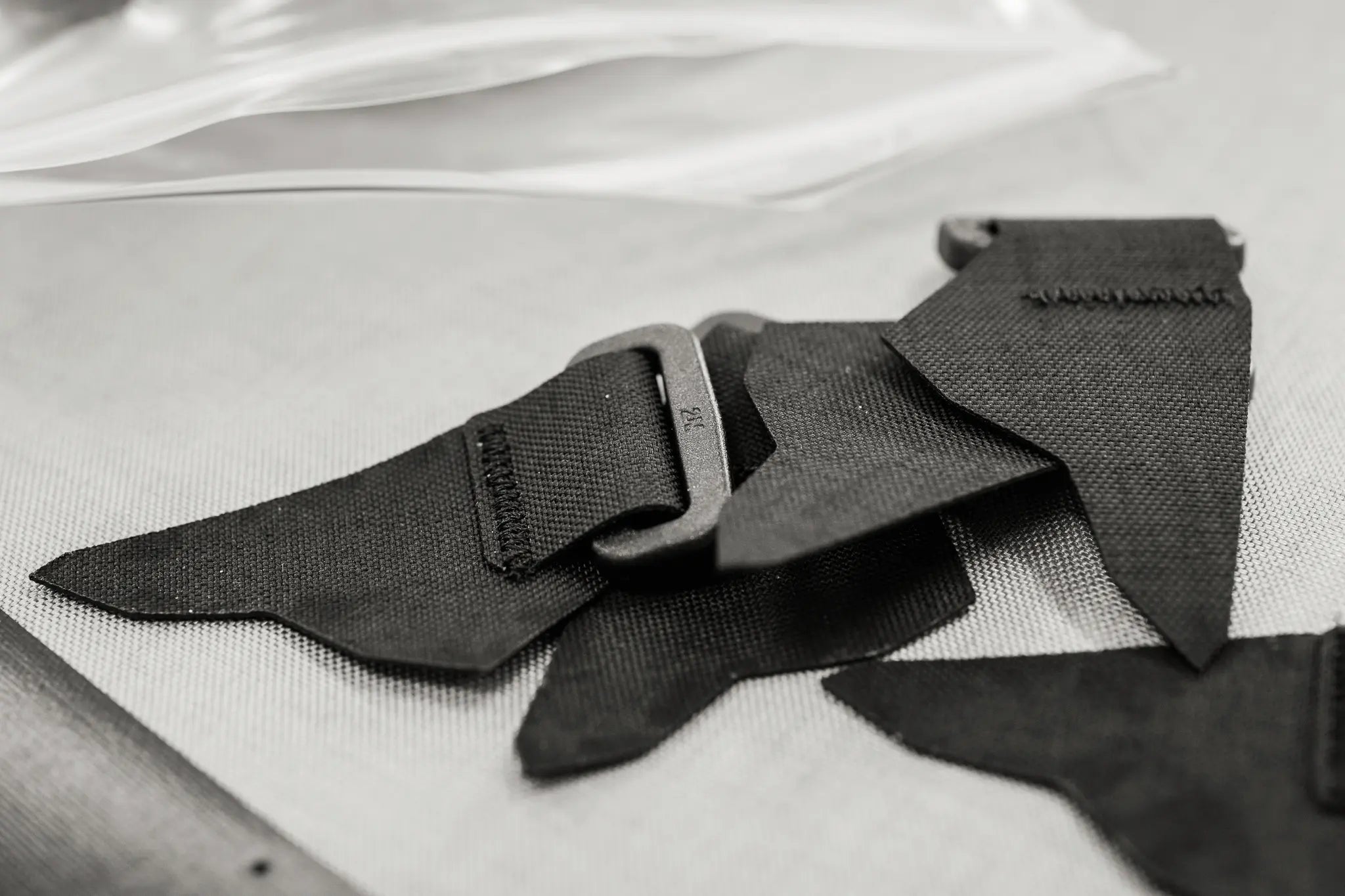
Materials
99% of the materials we use are manufactured in Europe. This is very important to us with regard to grey energy and sustainability. Short distances and complete production in Switzerland are what distinguish Speck Gear products. We know our suppliers personally and are in constant communication with them. This is important for consistent product quality for both sides. We use materials with a high proportion of renewable raw materials and without harmful PFAS. Our most important criteria when selecting products are the quality of the raw materials and the production conditions. We would never use an inferior recycled product of dubious origin just because it's fashionable. We firmly believe that durability and repairability bring the greatest benefit to the customer and also to the environment. At the end of the product's lifespan, the individual parts can be easily separated and recycled because they are neither welded nor glued.
The webbing and binding used are woven to military-grade quality in a factory in Germany. The plastic fasteners are made in Italy and are also made of durable polyamide 6.6. All metal parts are made of A2 chrome steel, and the tension hooks were specially manufactured for Speck Gear near Zurich from spring chrome steel.
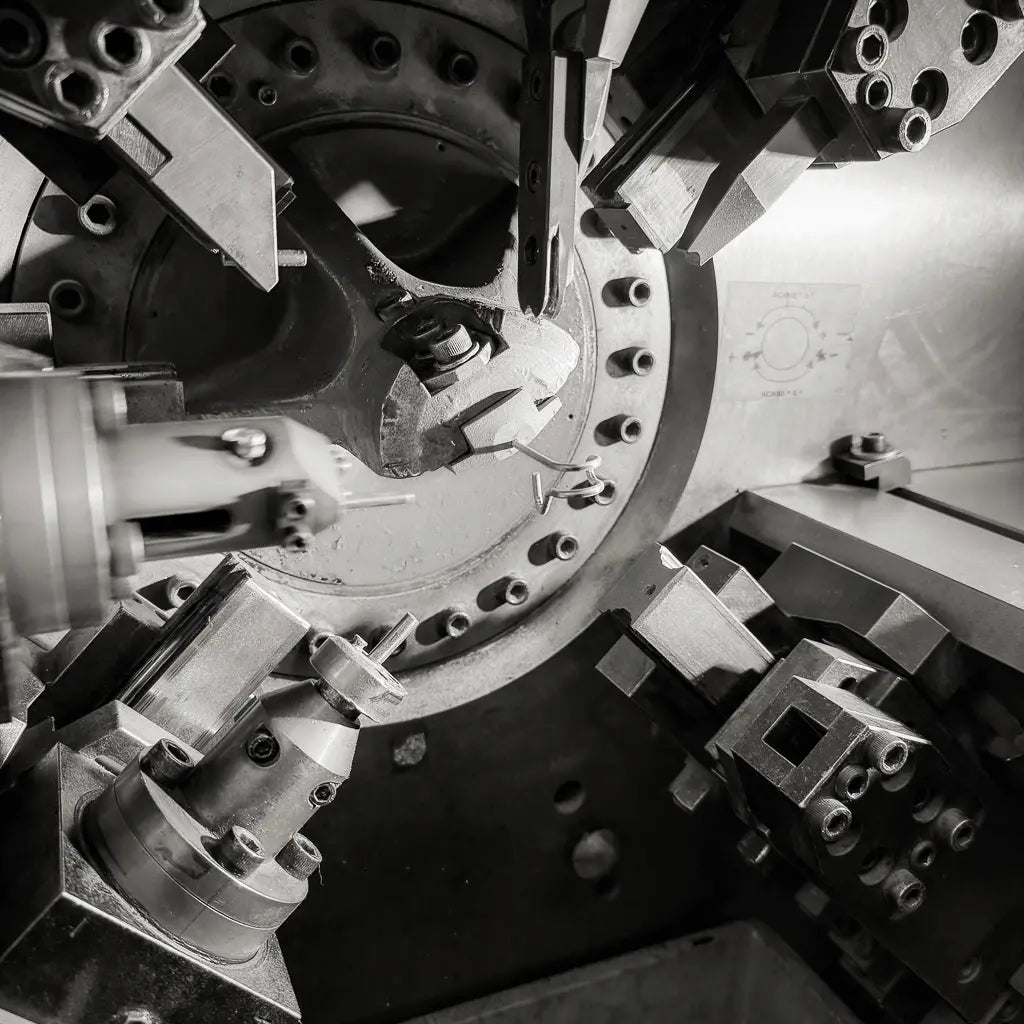
Production of metal hooks
A company specializing in wire bending produced our custom-made hooks from spring chrome steel in the Zurich area. The equipment used is highly complex, and its precise programming is very time-consuming. Once everything is set up, it runs all the faster. A hook is fully bent every 18 seconds. A miracle machine!
textiles
Our 560 dtex outer fabric is made with Sensil® Thougtex by Nature. The yarn is produced entirely in Europe and woven and dyed in Germany for Speck Gear.
Nilit is a global producer of polyamide 6.6 for clothing. In collaboration with BASF, the company has developed a new generation of polyamide (Sensil® by Nature) that requires fewer fossil resources. Adipic acid, a key component of polyamide, is traditionally derived from fossil feedstocks. BASF now produces it from renewable raw materials, so-called biomass-balanced adipic acid, which is obtained from the fermentation of organic waste (such as food waste). These bio-based raw materials are blended with fossil feedstocks in BASF's production. The polyamide is made from 96% renewable raw materials and offers the same quality and performance while reducing the use of fossil resources and carbon emissions.
Test procedures
All our materials and prototypes undergo intensive testing in "real" use. To realistically simulate the high levels of abrasion experienced during bikepacking, we subjected the bags to abrasion tests using various commercially available textiles. This revealed that many of the currently widely used recycled and Dyneema fabrics couldn't withstand our requirements. They developed holes after just a few meters and were unusable.
For this reason, we decided to develop our own sustainable, and extremely durable textile. This special material was carefully selected and tested to withstand the extreme conditions of bikepacking. We place particular emphasis on environmental compatibility, durability, and functionality. The result is an innovative solution that not only withstands the stresses and strains but also meets our sustainability standards. This ensures that our products remain reliable and durable, even under intensive use.
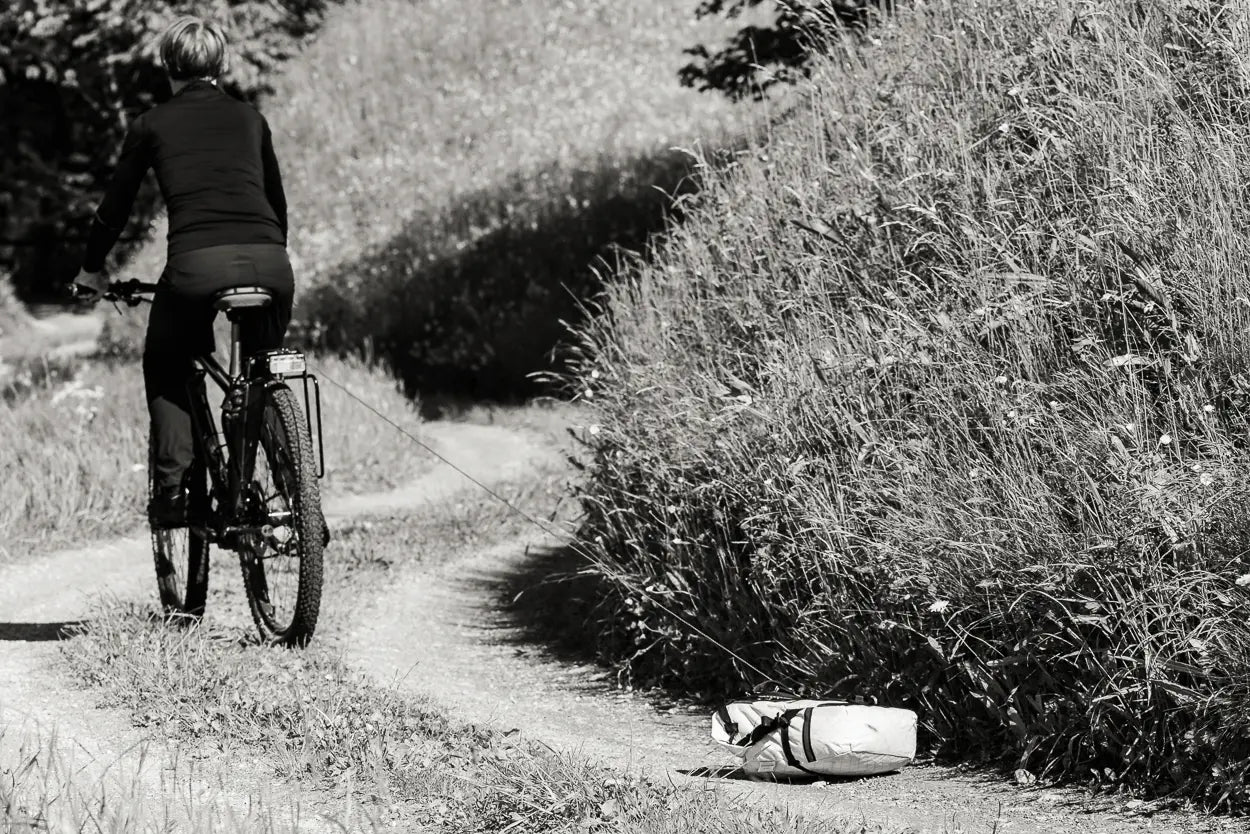
Stress test abrasion
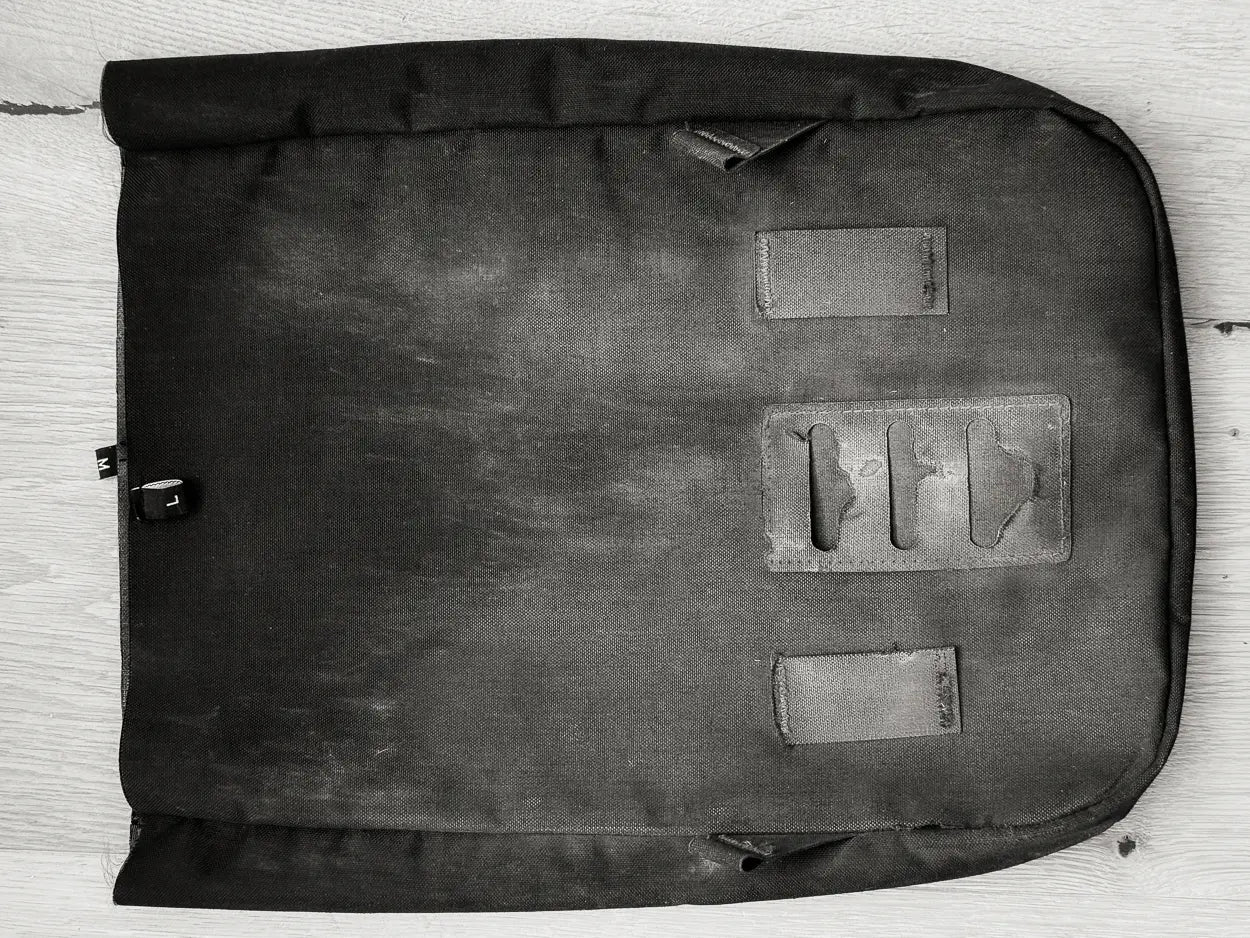
Sensil® Thougtex by Nature after the stress test
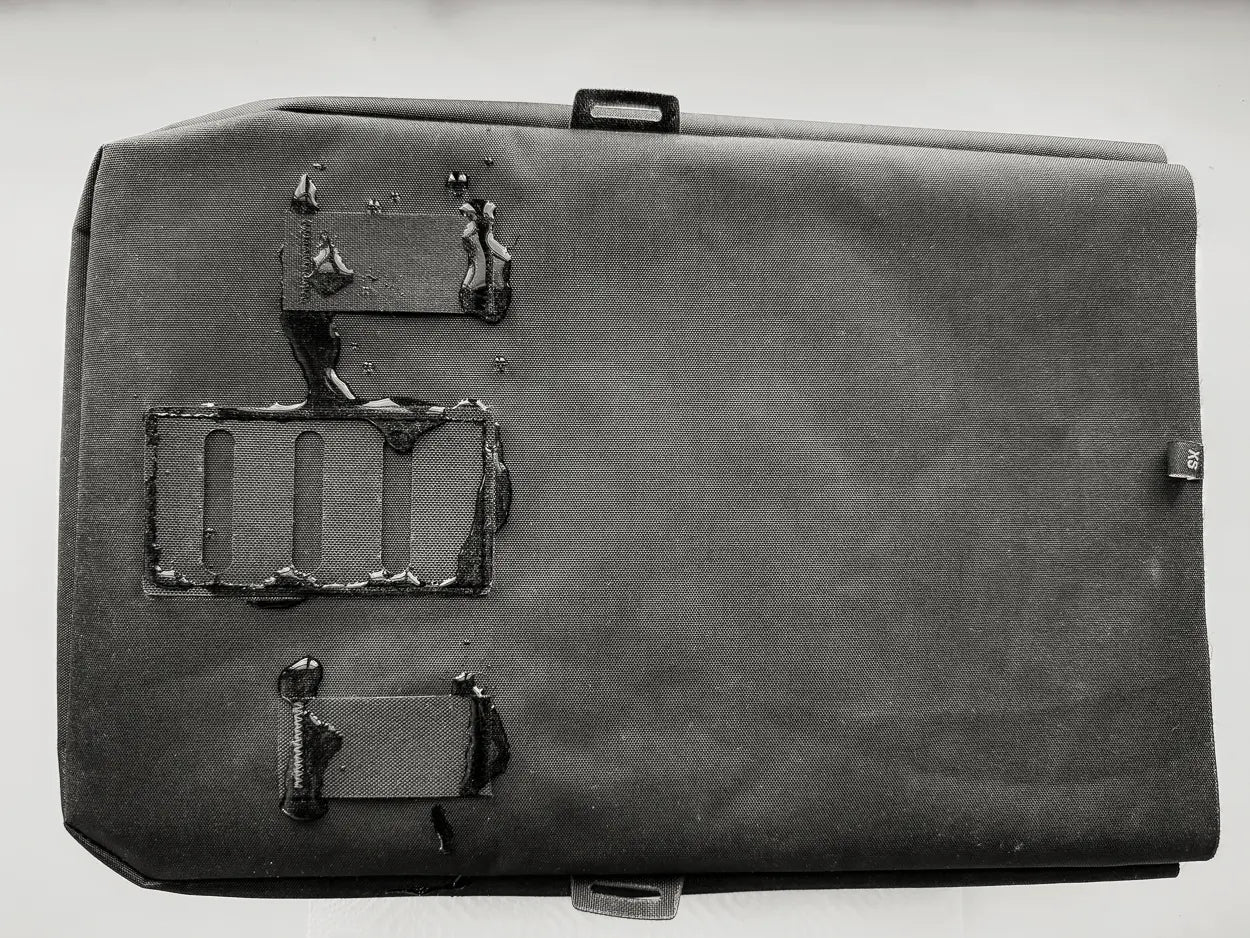
Tightness test thread and seams
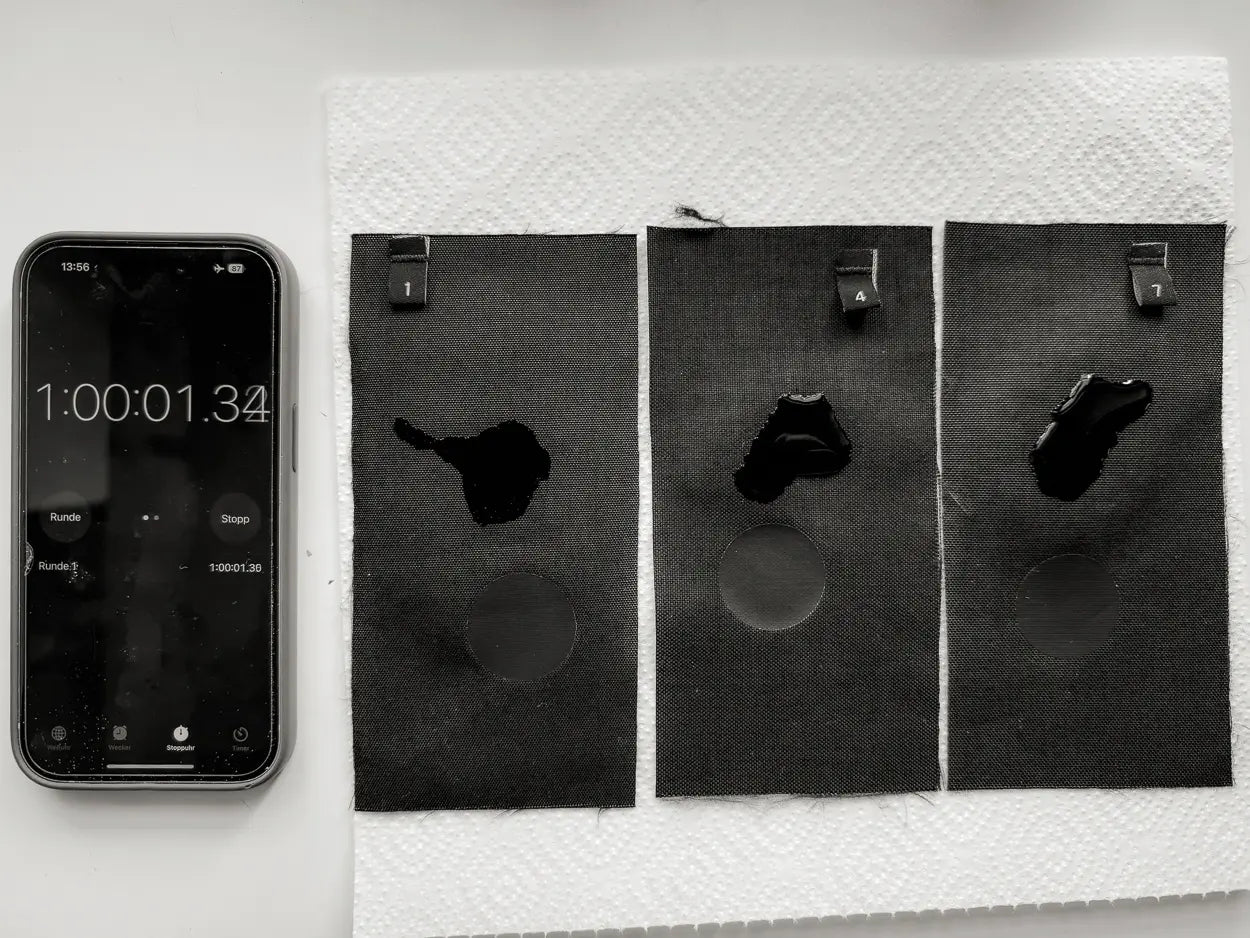
Textile test after different wash cycles